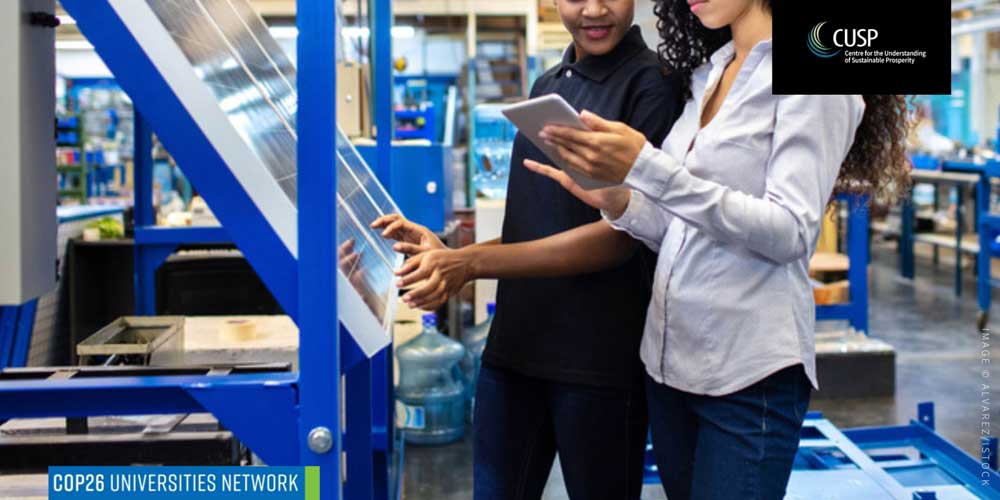Just Transition: Pathways to Socially Inclusive Decarbonisation
#COP26Universities Network Briefing
October 2020

The transition to net-zero cannot be sustainable if it creates or exacerbates social inequalities, warns a group of academic experts from the COP26 Universities Network—a group that CUSP has joined of more than 45 UK-based universities and research centres.
In a new policy briefing, the authors—including CUSP co-investigator Dr Marit Hammond—emphasise that the impacts of climate change and the policy measures implemented to mitigate them, vary greatly depending on place, time and social contexts. The authors stress the importance of policy being developed in partnership with communities, to help ensure that the costs and benefits of ambitious climate action are shared in a fair and equitable way.
The paper identifies five blind spots in the current debate around decarbonisation:
- Job creation per se does not deliver ‘just’ outcomes; the types of jobs, what they pay, and how secure they are matters
- The effects of climate change and related policy responses will be experienced differently; effects are felt differently across genders, ethnicities, class and age, as well as geography
- A just transition will look very different in a developing country context; additional support is needed for developing countries, whose growth and employment rates remain closely linked with carbon emissions
- Social backlash is likely if the transition is not perceived to be just; stakeholder voices need to be heard in discussion and decision making, creating ‘policy shapers’ rather than passive ‘policy takers’
- Businesses and investors can help mitigate negative social impacts of the transition; public and private- sector firms will be key partners in implementing socially inclusive decarbonisation policies.
Whilst the group emphasise that there is no ‘silver bullet’ approach to delivering a just transition to net zero, the paper identifies a number of tools for policymakers to meet targets whilst also upholding social justice. These include shifts in energy production and distribution patterns towards more local, community-led energy initiatives, a greater focus on democratic engagement platforms, such as Citizen Assemblies, and independent / interdisciplinary research across climate, energy and environmental justice to inform effective policy, as well as the establishment of independent advisory bodies.
The paper is available for download in pdf. If you have difficulties accessing the paper, please get in touch: info@cusp.ac.uk.
Citation
Abram S, Atkins E, Dietzel A, Hammond M, Jenkins K, Kiamba L, Kirshner J, Kreienkamp J, Pegram T and B Vining 2020. Just Transition: Pathways to Socially Inclusive Decarbonisation. COP26 Universities Network Briefing, 5 October 2020.



